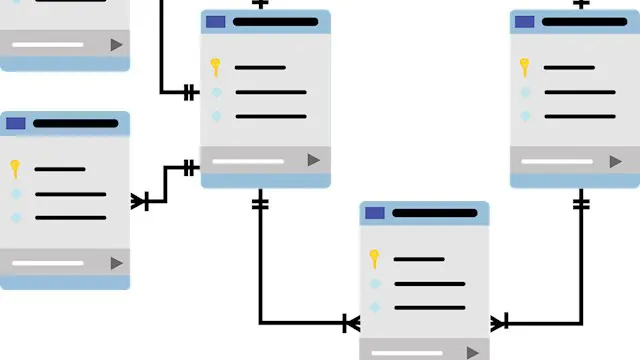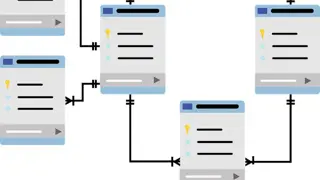- Certificate of completion - Free
- Reed courses certificate of completion - Free

Oracle PL/SQL Programming
Uplatz
Self-paced videos, Lifetime access, Study material, Certification prep, Technical support, Course Completion Certificate
Summary
Overview
Certificates
Certificate of completion
Digital certificate - Included
Course Completion Certificate by Uplatz
Reed courses certificate of completion
Digital certificate - Included
Will be downloadable when all lectures have been completed
Curriculum
Course media
Description
Overview of Oracle Database Architecture
Introduction to PL/SQL: Features & Advantages
PL/SQL Block Structure (Anonymous Blocks)
Execution Environment of PL/SQL
PL/SQL Development Tools (SQL*Plus, SQL Developer)
Declaring Variables and Data Types
Constants and Scope of Variables
Using %TYPE and %ROWTYPE
Operators and Expressions
Commenting and Formatting
Conditional Statements (IF, CASE)
Loops (Basic LOOP, WHILE LOOP, FOR LOOP)
EXIT and CONTINUE Statements
Nested Blocks and Scope Rules
Implicit Cursors
Explicit Cursors: DECLARE, OPEN, FETCH, CLOSE
Cursor FOR Loops
Cursor Attributes (%FOUND, %NOTFOUND, %ROWCOUNT, %ISOPEN)
Parameterized Cursors
Cursor with Subqueries
Types of Exceptions: Predefined, User-defined
Handling Exceptions using EXCEPTION Block
RAISE and RAISE_APPLICATION_ERROR
Exception Propagation and Scope
Creating and Executing Procedures
Creating and Using Functions
Parameter Modes: IN, OUT, IN OUT
Calling PL/SQL Subprograms from SQL/Other Programs
Differences Between Procedures and Functions
Introduction to PL/SQL Packages
Creating Package Specifications and Bodies
Private vs Public Objects in Packages
Advantages of Using Packages
Using Built-in Oracle Packages (e.g., DBMS_OUTPUT)
Types of Triggers: BEFORE, AFTER, INSTEAD OF
Row-level vs Statement-level Triggers
Creating and Managing Triggers
Trigger Restrictions and Mutating Table Errors
Compound Triggers (Oracle 11g+)
Introduction to Collections: VARRAY, Nested Tables, Associative Arrays
Declaring and Manipulating Collections
Bulk Collect and FORALL Statements
PL/SQL Records and Composite Data Types
Dynamic SQL using EXECUTE IMMEDIATE
Working with Large Objects (LOBs)
Autonomous Transactions
Performance Optimization and Best Practices
Using PL/SQL with Cursors and Joins
Secure Coding Practices in PL/SQL
SQL*Loader for Data Import
UTL_FILE for File Handling
Using DBMS_SCHEDULER for Job Scheduling
Logging and Auditing in PL/SQL
Debugging and Profiling PL/SQL Code
Building a Payroll Processing Module
Designing an Inventory Management Subsystem
Financial Transactions and Audit Trail
Data Transformation and ETL with PL/SQL
Automation Scripts for DB Maintenance
Who is this course for?
- Aspiring Database Developers – Individuals looking to start a career in Oracle database development and application programming.
- SQL Users & Analysts – Professionals familiar with SQL who want to expand into procedural programming for more complex logic and automation.
- Oracle Application Developers – Developers working on Oracle-based enterprise applications who need to write or maintain PL/SQL procedures, triggers, and packages.
- Database Administrators (DBAs) – DBAs aiming to enhance their scripting and automation skills using PL/SQL for performance tuning and administrative tasks.
- Software Engineers & Backend Developers – Engineers building scalable data-driven applications that require efficient data manipulation and logic control.
- ETL Developers & Data Engineers – Professionals working on data integration and transformation processes in Oracle environments.
- Students & Graduates – Computer science and IT students seeking hands-on knowledge of enterprise database programming to increase employability.
- Tech Professionals Preparing for Oracle Certifications – Learners aiming to pursue certifications such as Oracle PL/SQL Developer Certified Associate or Oracle Database SQL Certified Associate.
Requirements
Passion and determination to achieve your goals!
Career path
- Oracle Developer
- Oracle DBA (Database Administrator)
- PL/SQL Developer
- Database Developer
- Database Modeller
- Database Programmer
- Metadata Administrator/Developer
- System Administrator
- Accounts Administrator
- Core Operation Engineer (Database)
- Systems Operations Engineer - SQL, Database
- SQL Database Developer
- Data Analyst
- Business Analyst
- Application Developer (back-end part)
- IT/Database Consultant
Questions and answers
Can you get a job after this course as Database Administrator? If not what other courses are required? Thanks
Answer:Hi Jay To become a Database Administrator, the primary skills you would need are SQL, database administration, cloud database management, ETL, NoSQL databases such as MongoDB, performance tuning, and to some extent scripting and automation using Shell scripting and Python. We have courses on all of these, and can share a few of them once you purchase this one. Team Uplatz
This was helpful.Do you get Oracle Software to practice the course?
Answer:Hi Jay Not oracle or any licensed software, but you can use the free/opensource relational databases such as MySQL for practice. Team Uplatz
This was helpful.Hi, I can learn the course and also obtain the completion certificate.No additional or extra charges is it ? and cost for that is 10 Pounds. is it ?
Answer:Yes, that is right! The course completion certificate is included in the course price. Regards Team Uplatz
This was helpful.
Reviews
Currently there are no reviews for this course. Be the first to leave a review.
Legal information
This course is advertised on Reed.co.uk by the Course Provider, whose terms and conditions apply. Purchases are made directly from the Course Provider, and as such, content and materials are supplied by the Course Provider directly. Reed is acting as agent and not reseller in relation to this course. Reed's only responsibility is to facilitate your payment for the course. It is your responsibility to review and agree to the Course Provider's terms and conditions and satisfy yourself as to the suitability of the course you intend to purchase. Reed will not have any responsibility for the content of the course and/or associated materials.
FAQs
Interest free credit agreements provided by Zopa Bank Limited trading as DivideBuy are not regulated by the Financial Conduct Authority and do not fall under the jurisdiction of the Financial Ombudsman Service. Zopa Bank Limited trading as DivideBuy is authorised by the Prudential Regulation Authority and regulated by the Financial Conduct Authority and the Prudential Regulation Authority, and entered on the Financial Services Register (800542). Zopa Bank Limited (10627575) is incorporated in England & Wales and has its registered office at: 1st Floor, Cottons Centre, Tooley Street, London, SE1 2QG. VAT Number 281765280. DivideBuy's trading address is First Floor, Brunswick Court, Brunswick Street, Newcastle-under-Lyme, ST5 1HH. © Zopa Bank Limited 2026. All rights reserved.

